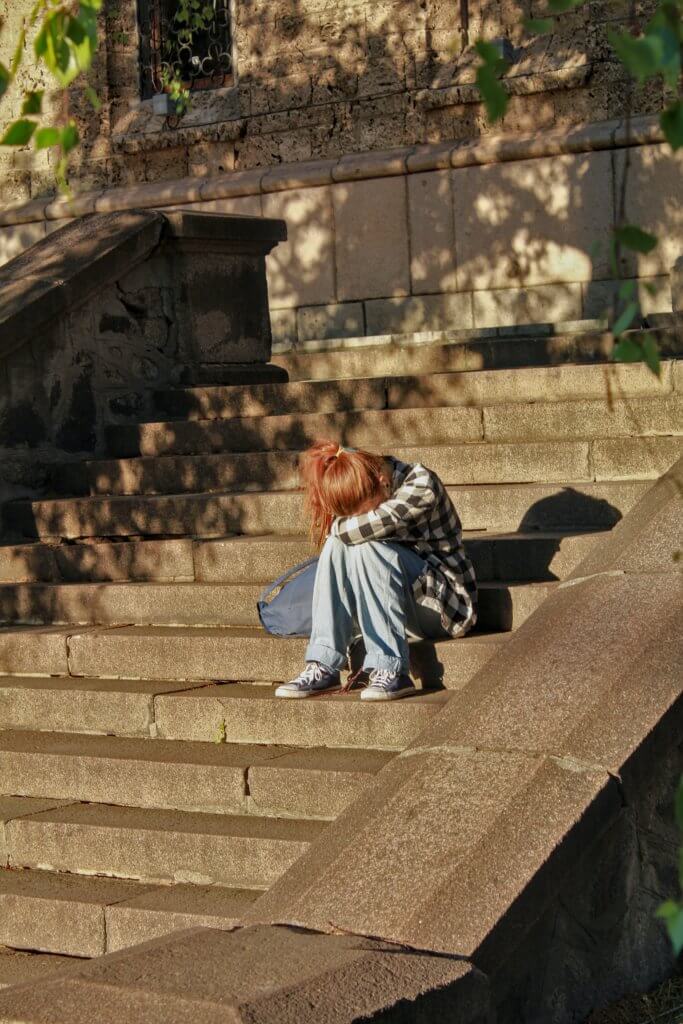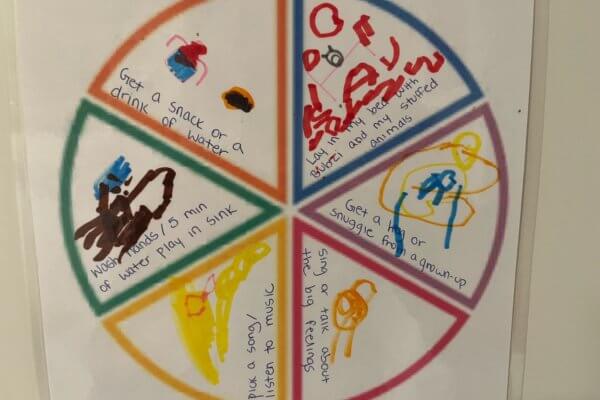Being present with your teen’s school discouragement
A mom in our community shared this:
“I’m struggling so much parenting my 15 year old son. He is so negative. He’s very smart & has friends, but he says he hates school, that the education system is stupid, homework is a waste, etc. He is literally negative about everything, yet he won’t do anything to make change. I have no idea if this is a normal developmental stage or something I should worry about. I don’t know how to respond to him. What I’m doing is not working, yet every single time I somehow get on the damn roller coaster. I seem to think I can reason with him and it never works. I just want to cry. I feel like I’m doing a terrible job.”
We see you!
So many comments came from parents saying “Yes! With you! We get it! We’ve seen it!” This is the bottom line. 15 is a really tough age. I work with a lot of moms of 15 year olds. This age is tough. The point of school right now can be hard to argue. Not all school environments are super encouraging and inspiring.
The discouragement right now is real.

There’s a book called “Positive Discipline A-Z” by Jane Nelsen. What I like about this book is that each problem is broken into three sections: understanding your child, yourself, & the situation, planning ahead for future problems, and life skills children can learn. I’m going to use that model to break down this challenge of high school kids who are feeling really discouraged and pessimistic about school. Take what lands for you and leave the rest behind.
Understanding your child, yourself, & the situation
Our teens are deeply discouraged right now. They’re coming off of a year of remote learning that really let them down. During a time where social engagement is part of their wiring, we said, “You can’t leave the house.” They had a vision of what their year should look like. My son is in tenth grade, and he was excited for high school. Then he didn’t get to go. They had to replace visions & dreams about what high school would look like with Zoom classrooms, masks, social distancing, and activities being cut short. The adults can’t really articulate when things will go back to normal or what normal will even be. They’re watching the adults navigate the pandemic, the climate crisis, the political polarity going on, so many things! They’re also part of a generation that is demanding to be seen & heard, and they’re pushing against the status quo (which they’re wired to do).
Some kids are really motivated to make change, but some kids withdraw into discouragement, pessimism, and powerlessness.
Parents, including me, are still attached to an educational path that looks like this: go to school, slog through the work, and graduate. I thought I was pretty laid-back and open-minded, but when my kid was done with high school three weeks into junior year, that was startling for me. I had to really confront my conditioning around “just do it.” We don’t take the time to put ourselves into their shoes and take their experiences and emotions seriously. We shrug off their emotions and chalk it up to teen angst, or we try to talk them out of their attitudes and try to get them to do what we did. We can be supportive, loving parents who care about them and be in the way of their experience. Sometimes we think we are the ones in control of their life experience and journey.
We unintentionally send the message that school matters to us more than they do and that their compliance matters more than their experience & emotions.
Many schools & districts could be doing better, too. There’s a lot of upstream work to be done in the education world.
Check yourself, parents
Explore where your thoughts and feelings are coming from. What are you most afraid of? When your kid starts talking about hating school, not doing their homework, failing a class, what are your fears? Write them down. Then go deeper and ask yourself, so what? Keep asking yourself. So what? What then? Keep doing this until you get to the core of your fears for your child. Consider if this is a rational fear.
Use emotional honesty with your child
“Education is important to me. It’s something I value. I do feel worried when I see and hear you so discouraged by school and learning. I’d like to explore some alternative learning possibilities with you, if you’re open to it.”

Validate their experience
“It must be so frustrating to spend so much time in a place that feels so pointless to you.” Then let them tell you about it. Listen and get clear about what they’re experiencing. Be curious. “Do you want to graduate? Do you have goals for school? What do you want to achieve? What do you see yourself doing after school?” Be open, neutral, and non-judgmental.
Walk away when you need to. Know when you’re becoming dysregulated and be willing to disengage. Resist that feeling of needing to lay into them. Get some space.
Planning ahead for future problems
If your child is in a pattern of complaining about school, the good news is that you can change how you respond. You can reply differently! It starts to become a dance. They complain, you try to convince, they dig-in, you get mad. All it takes is one person to change the dance. So interrupt and respond differently.
Focus on the social part of school. “Tell me who you hung out with at lunch. What made you laugh today?” Find something that has nothing to do with academics to connect about.
Look for more opportunities to connect
Create a time once a week where you get breakfast and chat. I do this with my son and I try to be really quiet so he can fill that space. This sends the message that they matter to you.
Set some boundaries
You get to say, “I’m willing to listen to you complain about school for 15 minutes, and then I want you to be willing to do some problem solving for 15 minutes.” Ask them, “What do you need here? Do you want my opinion?” You don’t have to guess, just ask them what they need in that moment.
Let go
If your teen is cutting school or not doing homework, there are natural consequences that show up without you needing to add to them. These are powerful learning opportunities. I have a friend whose daughter cut a lot of school and failed some classes her junior year of high school. Her mom had to ask, “What do you want? What’s important to you?” Her daughter decided she wanted to graduate with the rest of her class, so she buckled down and got through those classes during summer school.
It’s not about abandoning them, it’s about getting out of their way and letting them feel some of the tension of life. The tension of life is a much better teacher than your lectures.
It’s not about us, it’s about giving them space to care about their own education. College is such a different experience when they actually want to go, feel purpose, and are engaged in what they’re learning.
Remember that their discouragement is temporary. You might know my story about my daughter leaving school, getting her GED, and going to esthetician school. Her path is her path, and she’s doing really well. I don’t have to get in her way or tell her it should look a certain way.
Life skills to learn
Our teens are able to discover what it is that they want. They get to fully embrace that they are the designers of their life.
They get to make choices for themselves rather than choose what will please us or what will piss us off.
We get to take ourselves out of the equation. They learn and feel the consequences of their actions and learn how to get back on track. They flex their self-advocacy muscles. These are all tools we want our kids to learn and practice. Yes, they might miss deadlines. If they miss opportunities – great! Those experiences will inspire and inform them while they go forward.
We cannot snowplow every challenge for them and think they’ll grow into resilient, empowered, confident adults.
We’ve got to get out of the way. Our job is to love them, to accept them, and to be available when they ask for help. Let them fail. It’s messy! It’s hard to let go of trying to lead them down the path we think they should be on and embracing & accepting where they are.
If you’re struggling with this, I can help. If you’re thinking “this sounds great,” but are struggling with implementing, check out Casey O’Roarty’s classes and coaching for parents and caregivers of adolescents.
Listen to this podcast episode with Casey O’Roarty.





Comments
Casey! I love this post! Thank you so much for diving in and sharing. Honestly, If I had not gone through JC six/seven years ago I would be losing the connection with my now teen. My biggest saving grace has been to just let her talk about whatever she needs to, even if it's negative (which some days feel like all of it is). I have practiced not needing to "fix", reason, or lecture her out of her experience. I often have to stop myself from inputting my opinion or experience (can be a challenge). The better I am at just listening the more she talks with me and her value and respect for herself shows. We have a really strong relationship and I am SO grateful. The daily work is worth every discomfort!
Ana